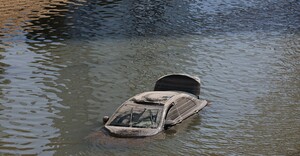Explore

Playing God with the Atmosphere
Listen to this articleProduced by ElevenLabs and News Over Audio (NOA) using AI narration.After a deluge...


Totality Is Worth It
A total solar eclipse is a rare opportunity to experience unadulterated communion with the cosmos.

Why a Cognitive Scientist Put a Head Cam on His Baby
The perspective of a child could help AI learn language—and tell us more about how humans...

The Coming Birth-Control Revolution
An abundance of new methods for men could transform women’s contraception too.

What’s So Bad About Asking Where Humans Came From?
Human origin stories have often been used for nefarious purposes. That doesn’t mean they are worthless.

The Most Dazzling Eclipse in the Universe
Anyone who watches the moon glide over the sun on April 8 will be witnessing the...

The CDC Is Squandering the Breakthrough RSV Vaccine
New RSV shots could make winter much safer for infants, but experts think current guidelines may...

Too Few Americans Are Eating a Remarkable Fruit
Breadfruit is a staple in tropical places—and climate change is pushing its range north.

Daniel Kahneman Wanted You to Realize How Wrong You Are
The late psychologist gave the world an extraordinary gift: admitting his mistakes.

Joe Biden and Donald Trump Have Thoughts About Your Next Car
Get ready for the EV election.

A Glowing Petunia Could Radicalize Your View of Plants
A bioluminescent petunia could help people recognize plants for the complex creatures they are.

Crows Are Taking Over American Cities
They’re flocking to urban areas for the same reasons people do.

How Long Should a Species Stay on Life Support?
Decades into their recovery program, black-footed ferrets still don’t have a clear-cut path to leaving the...

The Most Powerful Rocket in History Had a Good Morning
SpaceX’s latest Starship mission flew farther than before—and tested technology that could elevate humankind’s spacefaring status.









